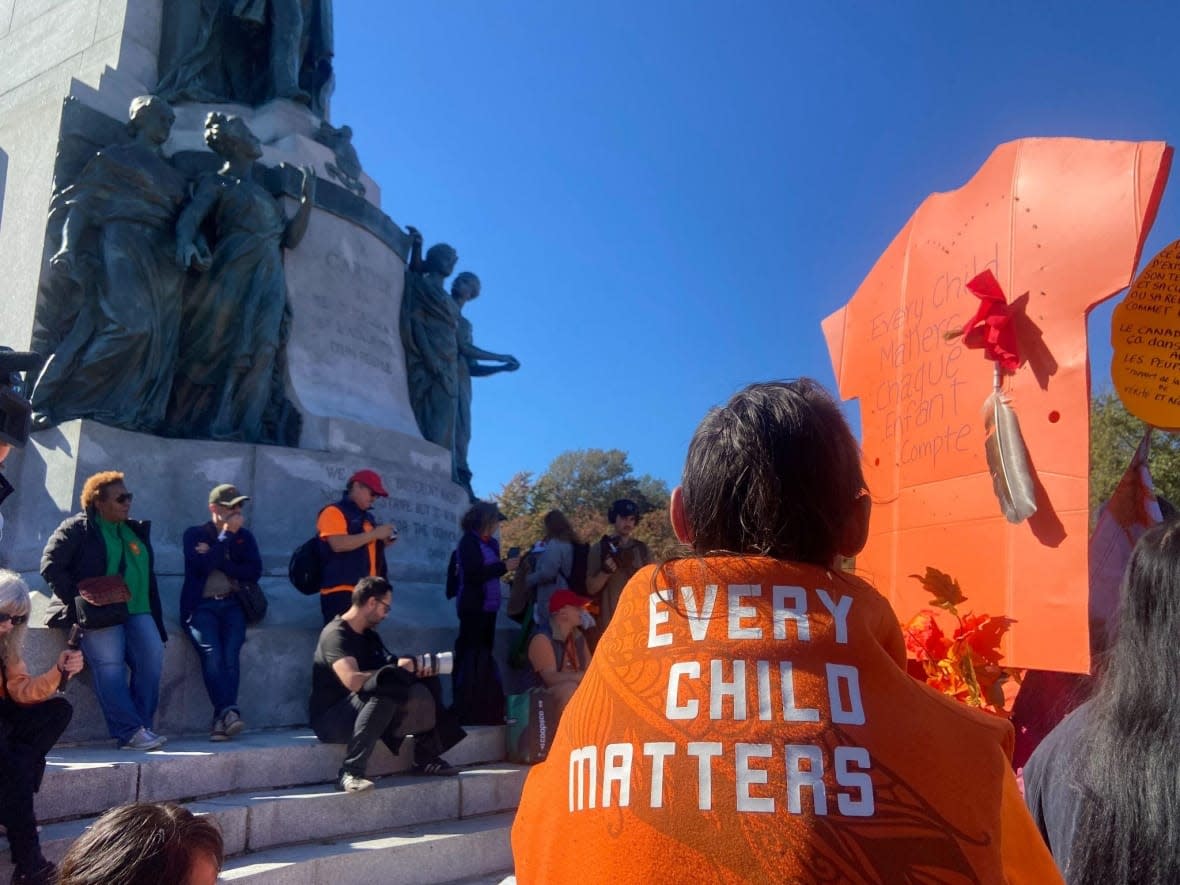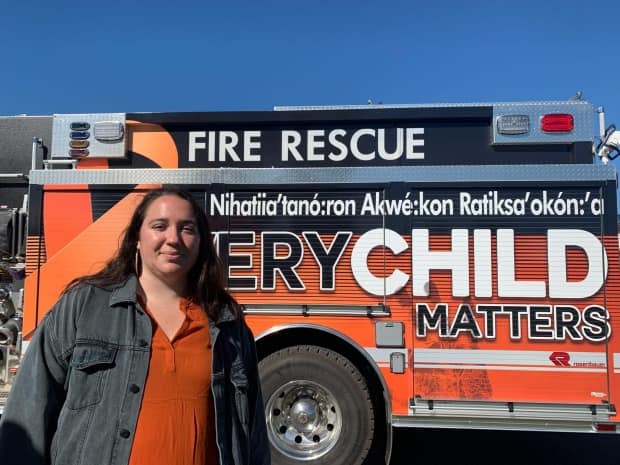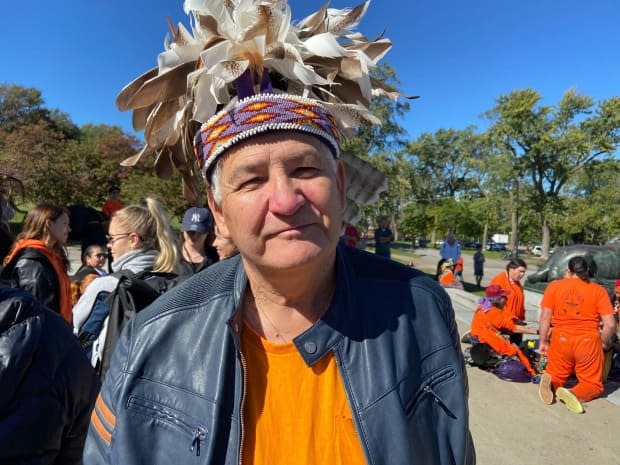'Truth is coming out': Thousands mark National Day for Truth and Reconciliation in Montreal and Kahnawake

The streets of Montreal were a sea of orange Friday, as thousands came together to mourn the children who died while attending residential schools and to celebrate the resilience of survivors, their families and communities.
It was the second annual National Day for Truth and Reconciliation, declared a federal statutory holiday by Parliament in 2021 — days after the Tk'emlúps te Secwépemc First Nation confirmed the discovery of roughly 200 potential burial sites, likely of children, on the site of a former residential school in Kamloops, B.C.
At least seven events took place in the greater Montreal area, including the second annual march organized by the Native Women's Shelter and Resilience Montreal, events in schools, and a tobacco ceremony in Kahnawake, the Mohawk territory on Montreal's South Shore.
Canada's residential schools, the earliest of which dated back to the 1870s, were notorious for abuse and for the deliberate policy of stripping generations of Indigenous children of their language and culture, in what the Truth and Reconciliation Commission has called deliberate "cultural genocide."
The last residential school closed in 1996.
Many of the schools were run by Roman Catholic orders, and in July, Pope Francis travelled to Canada to publicly apologize for the "deplorable evil" perpetuated by the schools and those who worked there. Many felt that apology fell short by failing to specifically acknowledge the actions of the Church or naming concrete actions to reconcile.
Truth, at last
"I think it's important that the truth part of truth and reconciliation is finally coming out," said Curran Jacobs, a Kanien'kéha (Mohawk) teacher, at a tobacco burning ceremony in Kahnawake.
"The more people learn the truth of this land, then we can focus on what actions constitute reconciliation."

Gathering and being able to practise their traditional ceremonies is an important part of healing the community, Jacobs said.
Kahnawake Grand Chief Kahsennenhawe Sky-Deer addressed those who gathered in her community, stressing the importance of the government's accountability for past actions.
"They completely tried to undermine and eradicate such strong, beautiful people — our culture, our languages, our ceremonies — because they didn't understand us," she said.
"I stand here with all of you today honouring, again, our survivors and the children who never came home."
Hope for a better future
In Montreal, the intent of Friday's march was also to remind people of systemic discrimination that is still causing harm, contributing to the recent deaths of Joyce Echaquan, Raphaël André, Siasi Tullaugak and others.
"I think people want to recognize this day, and it's healing for them. The more people that come here, the more it shows that people care, and that's what we need to see," said Nakuset, executive director of the Native Women's Shelter of Montreal.
"People who lived through residential school or their parents went to residential schools have to go through these feelings all the time. It's only one day that it's recognized, but for us, it's ongoing."
Indigenous peoples everywhere are still fighting for their culture, languages, land and status — all of which are essential to heal, said Nakuset.
Elders and survivors of the residential school system gave testimonies at both the march and tobacco ceremony.
Mohawk elder Steve McComber, who attended what was then called an Indian day school in the 1960s, said the nuns who taught him called him a "maudit sauvage" (which roughly translates to "damn savage") and hit him with sticks.
"Nevertheless, we're here today," he said.
McComber said events like the march are a positive beginning.
"We can't change the past but we certainly can hope to make a better future for everybody. I think that's what everything is about, and I think people gathering here today is a wonderful thing."

It has been 14 years since the Truth and Reconciliation report was released, calling on the government to respond to 94 calls to action, only 13 of which have been carried out.
Nakuset said these reports and recommendations are useless if they don't lead to action.
Curran, however, said she wants her community to celebrate its resilience rather than focus on trauma and pain. The ceremony in Kahnawake was meant to feel like a birthday party, she said.
"A birthday is something that our survivors didn't get to have while they were in residential school," said Curran. "It's a way for us to change that narrative moving forward, when we're thinking about how to take care of ourselves as a community with the history of residential schools."
As for the future, Curran said all she wants is a world where Indigenous children can live freely as themselves and "not have to live in the shadow of a legacy of this really traumatic history."
"I see all these kids right now running around with us," she said.
"To see a world where they're accepted for who they are, that it's OK for them to have Kanien'kéha names and to be able to express themselves in their language and have access to that — that would be the most beautiful thing to see."

 Yahoo Movies
Yahoo Movies 
